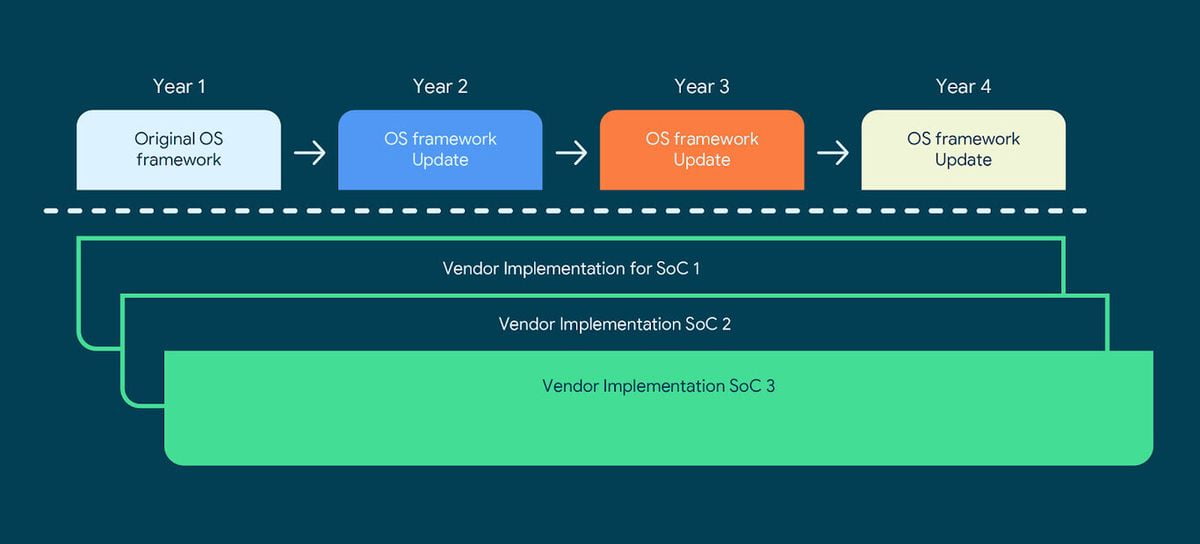Four years of Android upgrades for Qualcomm processor-based phones starting in 2021. Android updates have always been a cause for criticism mainly because on the opposite sidewalk, in the world of iOS, the difference was quite noticeable. To all this, we must add manufacturers who do not release phones with the latest version and who delay the arrival of improvements so much that finally not even what was initially promised is fulfilled.
Thus, the two years of Android updates and three years of security patches become a theoretical time that few brands meet. Google, however, wants to go deeper into solving this problem. And has sealed an agreement with Qualcomm to extend the updates, including security patches, to four years. All starting in 2021.
Four years of Android upgrades for Qualcomm processor patches and system
At first, Google put Project Treble on the table. This new internal reorganization of Android allowed, among other things, to treat certain parts of Android independently to speed up updates for manufacturers. The system layer was thus separated from the part accessible by manufacturers, simplifying processes to extend maintenance.

With the new agreement signed with Qualcomm, Google promises that the North American firm’s processors will maintain compatibility with the system for up to four years after its launch. Always talking about new processors, of course. So a processor launched in the year 2021 will be compatible with the versions of Android launched until the year 2025.
Qualcomm cell phones will be able to offer four years of complete Android updates, including security patches and fixes, extending the current timeframe by one calendar year and doubling the number of years of operating system updates. Google has been working with Qualcomm for a full year to achieve this new support, which will begin next year, 2021.
These new coverage periods in Android upgrades will take effect as soon as the first native Android 11 processors leave the factories, starting with the latest Snapdragon 888 signed by Qualcomm. It is logical to think that the next Pixel will adopt the new update deadlines immediately and that not a few manufacturers will also do so, since the main problem, that of the processor manufacturers themselves, will have been solved. We will see what happens with the mobiles with MediaTek, Exynos, and company brains because for now, their future is unknown.




